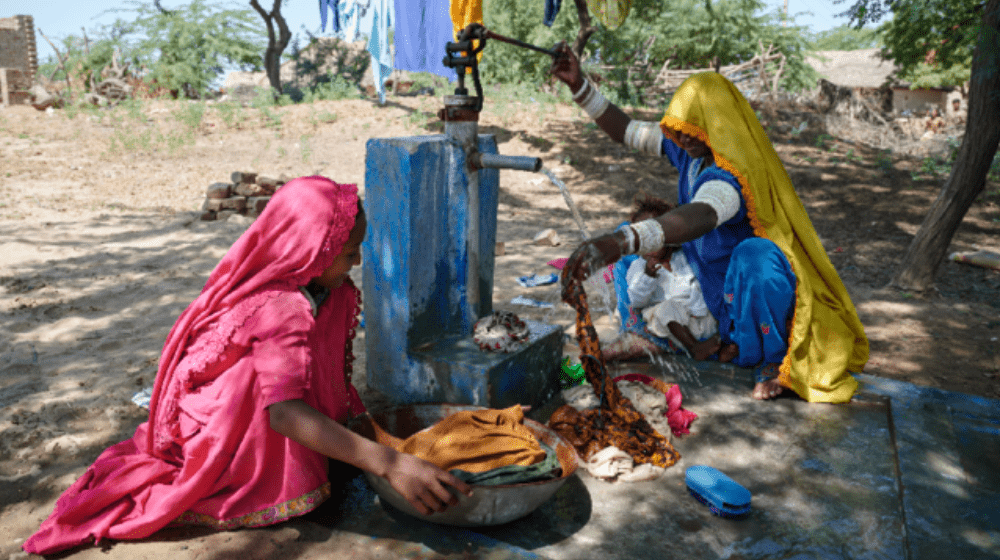The Gift of Dignity
In flood-affected areas of Dera Ghazi Khan and Rajanpur, UNFPA's dignity kits brought hope to women and girls amid the devastation. Strengthening Participatory Organization (SPO) ensured these kits reached the most vulnerable, particularly women and girls with disabilities.
SPO conducted multiple distributions in Dera Ghazi Khan, touching the lives of 172 women and girls with disabilities. These kits became a symbol of love, empathy, and unity, showing that in times of adversity, people of all backgrounds and abilities can come together for a brighter future.
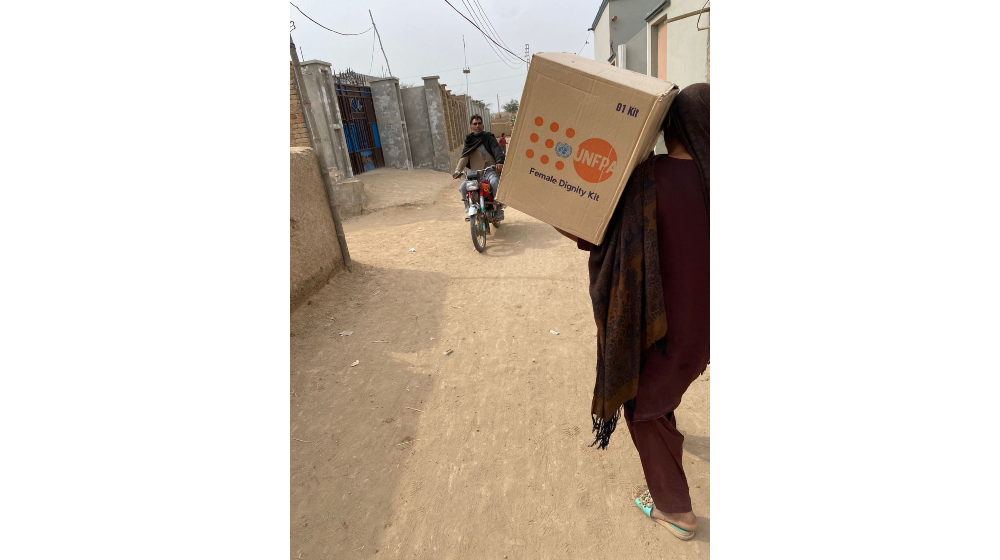
Hope in Women and Girls Friendly Spaces
Jameela, a woman in the village of Mangrotha, faced a life marked by hardship, illiteracy, and family scorn. The devastating flood of the previous year left her with a shattered home and a family to care for. Her husband's accusations of laziness and her children's indifference added to her struggles. A haunting memory of her inability to sign a document left her feeling helpless.
However, Jameela's life took a positive turn when she learned about the Women and Girls Friendly Space (WGFS) in her community. With the support and guidance of the PSSW, she transformed her world, emerging from illiteracy and despair with newfound grace and resilience. Jameela's journey became a testament to the power of education, love, and resilience, proving that even in the darkest moments, hope can lead to a brighter tomorrow.
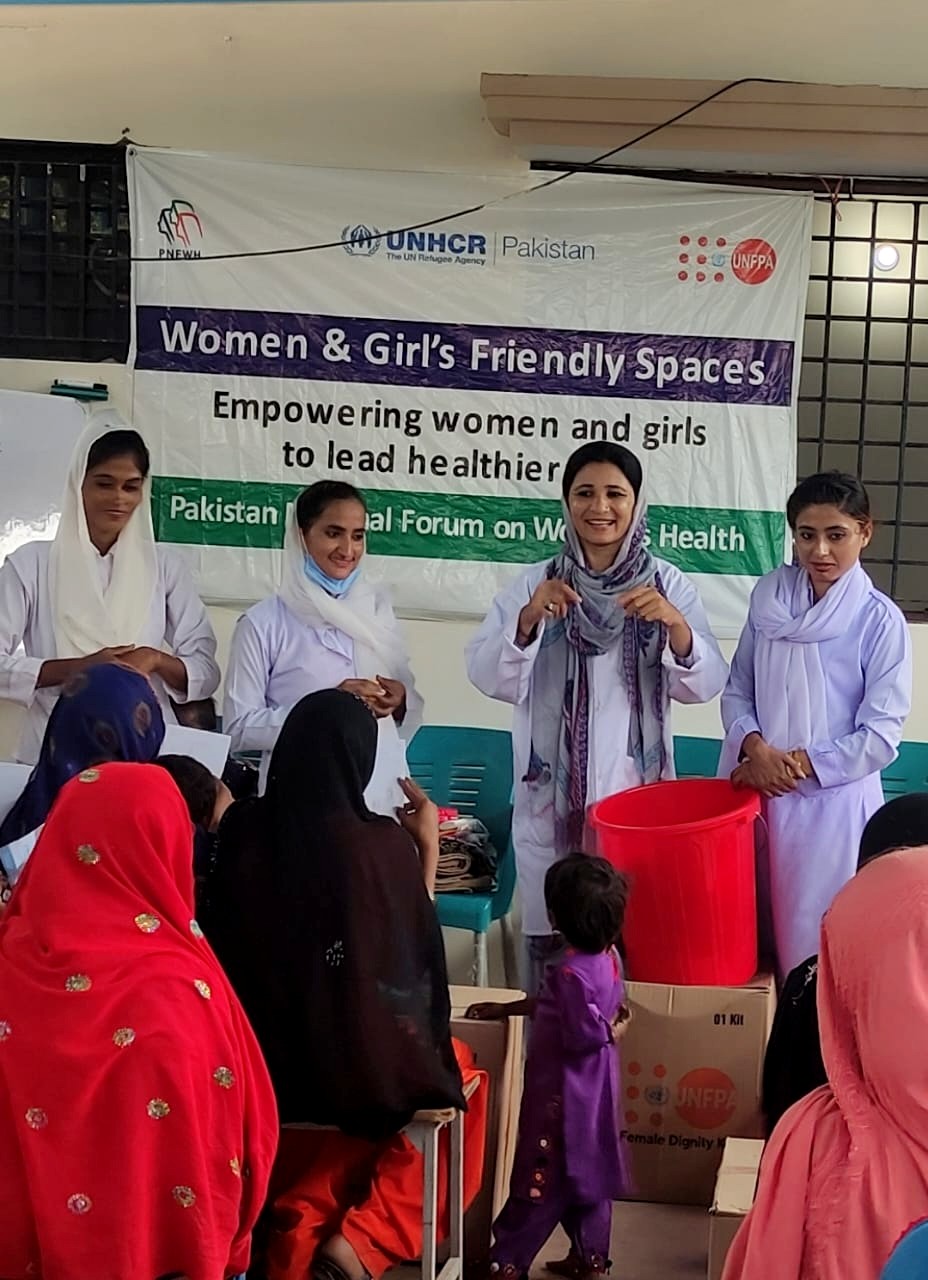
Saved from complications of a miscarriage
"I had been experiencing continuous bleeding for three days," said Malooka, her words trembling. "The nearest dispensary had been ravaged by floods, much like my own house." She sat on the floor of a tent within a camp designated for flood-affected individuals in Sindh, her expression devoid of hope, her complexion sickly and pale, and her demeanor helpless.
In her arms, Malooka cradled her 6-month-old infant, while her three other children, aged two, three, and five, clung to her skirt, crying out for food. Unbeknownst to her, Malooka was in the midst of a miscarriage.
Fortunately, a medical team arrived just in the nick of time, rescuing her and swiftly transporting her to Al Farabi Hospital for post-miscarriage care.
Today, she is an active participant in the Women and Girls Friendly Space at Al Farabi Hospital and has embraced family planning services.
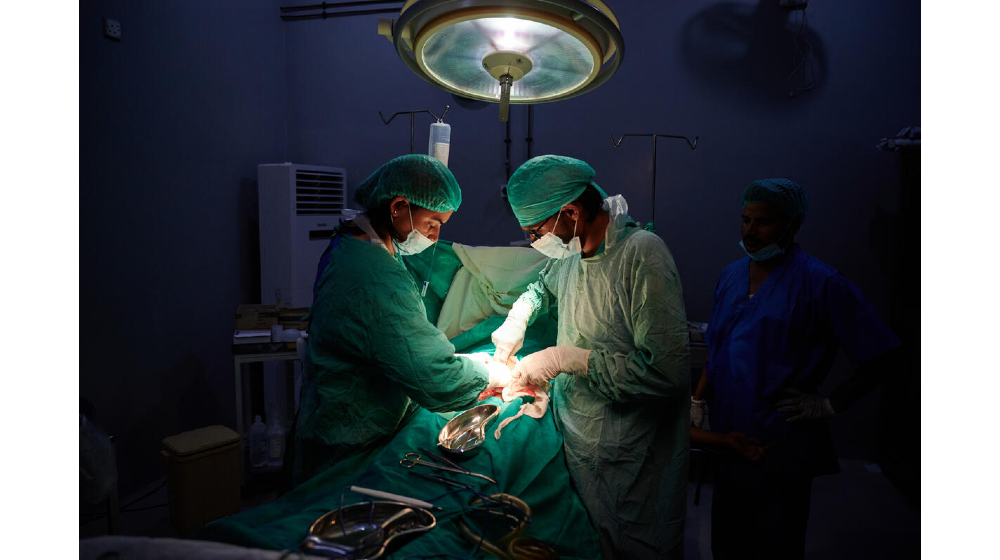
Dignity for women and girls living with disabilities
Faiz Mai is a resident of Chakk Lassah, a village located in the flood-prone region of Rajanpur, Punjab. Throughout her life, she has confronted numerous challenges, but none as formidable as her disability, which has confined her to a wheelchair.
Last August, as the floodwaters surged and enveloped her village, Faiz faced an even more daunting struggle.
Amidst the chaos of the flood, Strengthening Participatory Organization (SPO), with the support of UNFPA, organized the distribution of dignity kits at the Women and Girls Friendly Space (WGFS) in Rajanpur. Faiz set her heart on receiving one of these kits, which contained essential items such as soap, sanitary pads, clean clothes, and more.
"As a person living with a disability, I constantly encounter challenges when trying to access dignity products for my personal hygiene," said Faiz upon receiving one of the dignity kits. "I am unable to afford some of the materials provided to me in this kit."
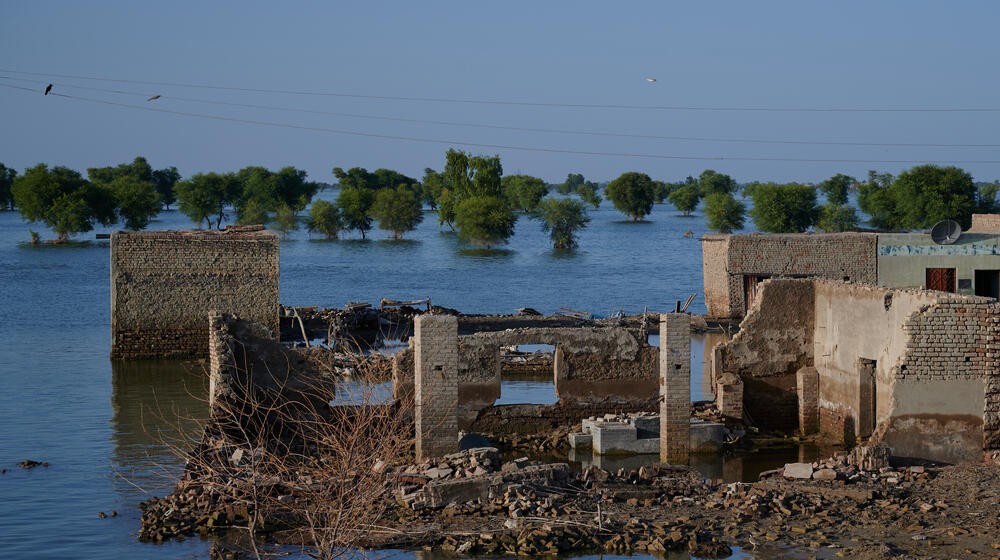
Overcoming Trauma and GBV with Mental Health Support
Asiya, a 35-year-old mother of four children from Jhal Magsi Kabbar, Balochistan, experienced trauma, and gender-based violence. She developed post-traumatic stress disorder (PTSD) soon after the devastating floods last year.
Asiya's husband had died in a road accident, leaving her dependent on an abusive, drug-addicted brother-in-law. She struggled with anxiety, depression, and sleep disturbances.
Asiya ended up receiving vital assistance from a psychologist working under with PPHI Balochistan Emergency Project. Through mental health counseling and therapy sessions, Asiya made significant progress, regaining her ability to focus, improving her sleep, and reconnecting with her family.
She expressed deep gratitude for the support provided by PPHI-B and UNFPA, emphasizing the importance of accessible mental health and psychosocial services in remote areas.
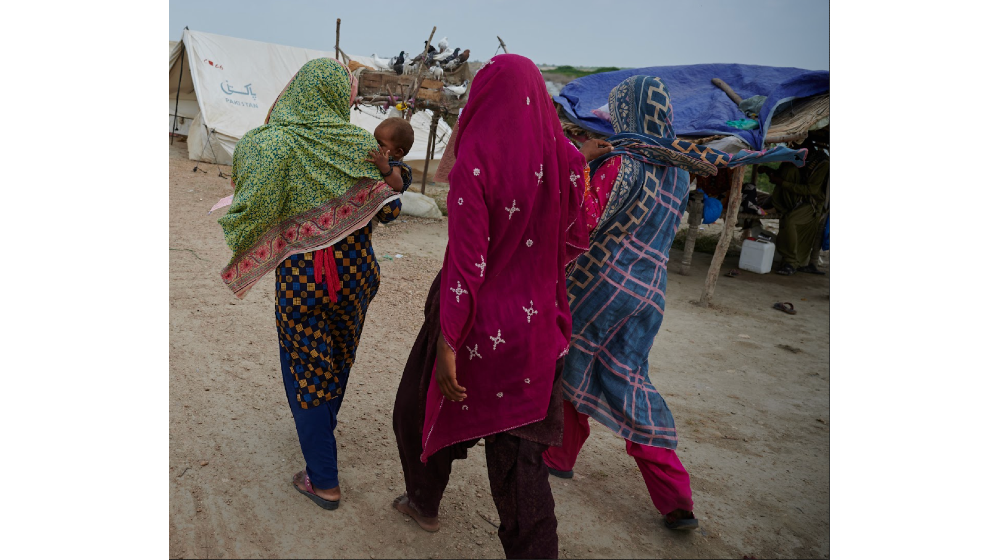
Finding hope and empowerment in the face of adversity through Women and Girls Friendly
Fatuma, a young woman in Sukkur, Sindh, married at 18 and had a joyful life with her husband and four children until a devastating flood in 2022 left them homeless. Her husband had to seek work in Karachi, and she faced mistreatment from her sisters-in-law while living with her in-laws. Her husband's return with a drug addiction worsened their financial woes, leading to loneliness and despair.
Her mother-in-law introduced her to Women and Girls Friendly Spaces (WGFS) in Sukkur, providing a supportive community and counseling that helped her find hope and strength to envision a better future. Medical care and emotional support at WGFS, along with the camaraderie of other women, empowered her to face life's challenges with renewed courage.
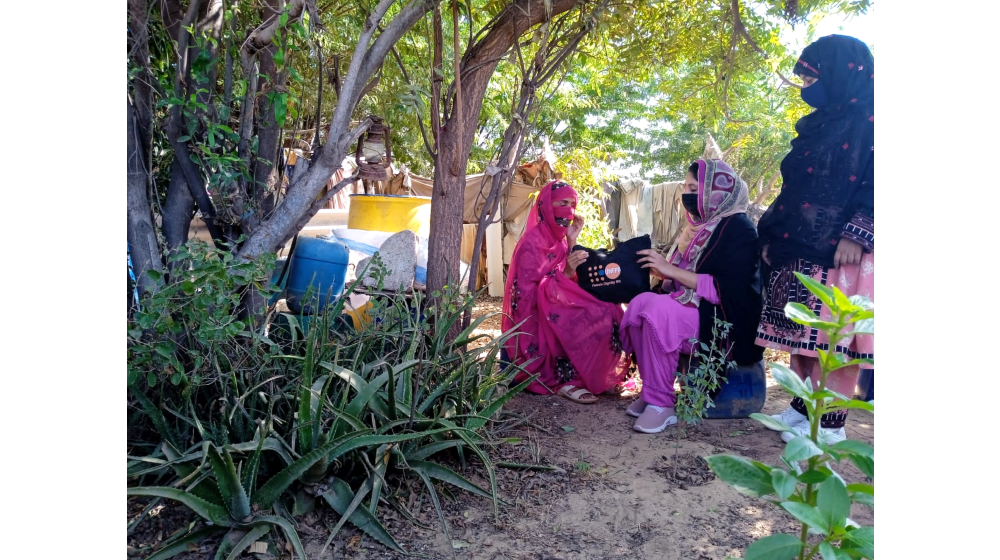
Surviving Gender-Based Violence: a story of resilience
After the 2022 devastating floods in Pakistan, gender-based violence is reported to have increased around the country. In a quiet Punjab village, a young woman named Dilruba faced violence from her husband, likely due to their property loss in the floods.
Dilruba lived in fear during her pregnancy until she found refuge in the Women & Girls Friendly Space (WGFS), run by the Strengthening Participatory Organization (SPO).
Community elders intervened, convincing Dilruba's husband to stop abusing her or face social isolation. He agreed, and weeks later, Dilruba returned to the WGFS, reporting that her husband had changed for the better, ending the abuse.
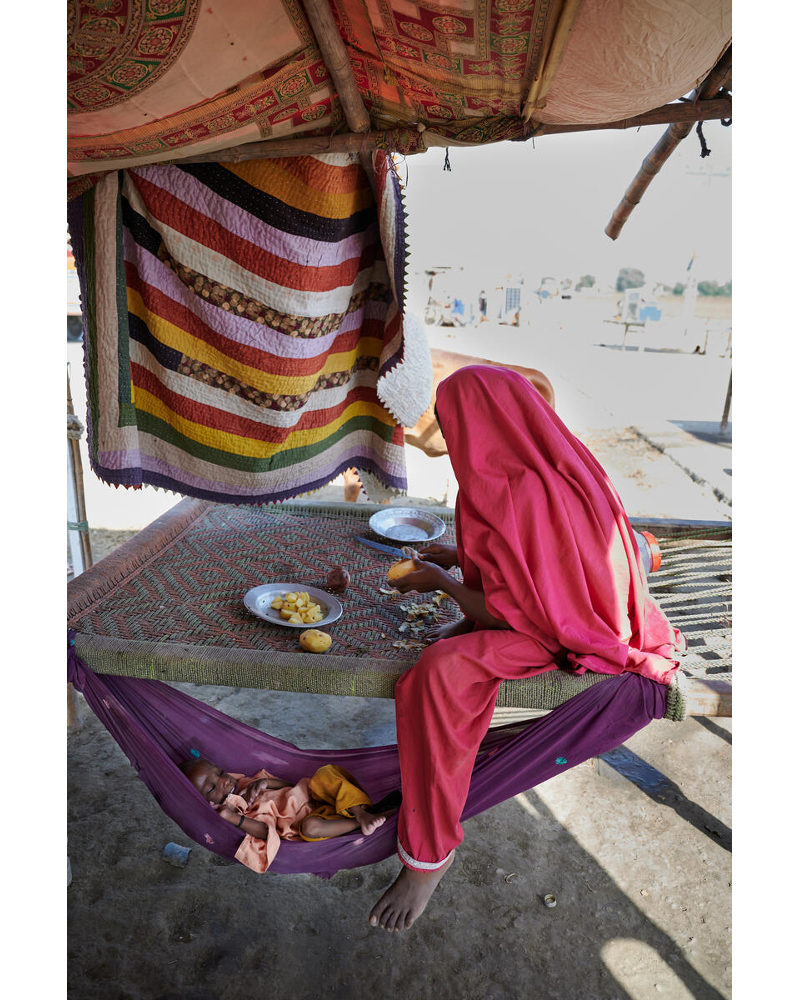
-----Pilirani Semu-Banda

